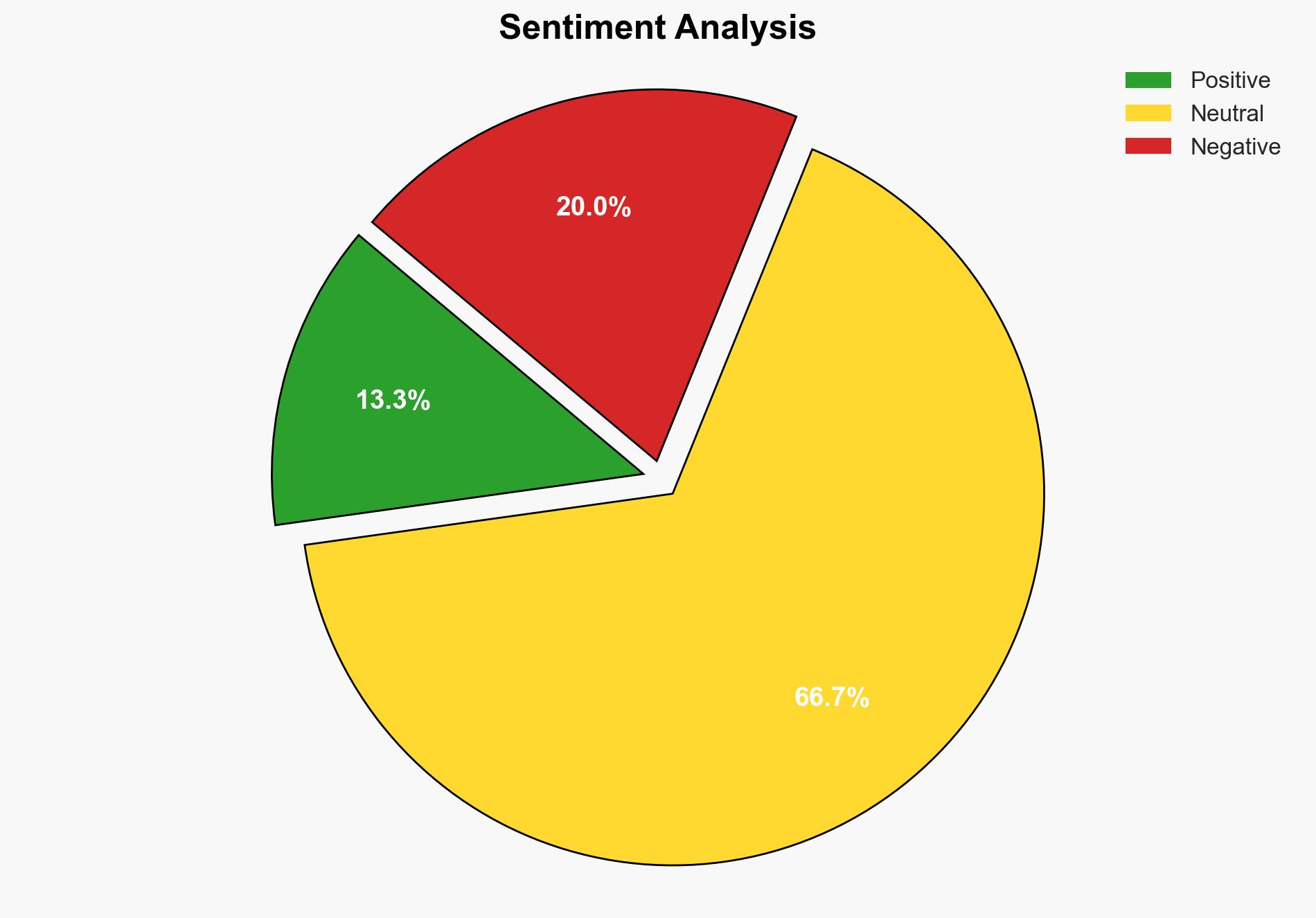Kurdish PKK Militants Declare Cease-Fire To End 40-Year Conflict – Globalsecurity.org
Published on: 2025-03-02
Intelligence Report: Kurdish PKK Militants Declare Cease-Fire To End 40-Year Conflict – Globalsecurity.org
1. BLUF (Bottom Line Up Front)
Kurdish PKK militants have declared a cease-fire, potentially ending a 40-year conflict with Turkey. This development follows a call from Abdullah Ocalan for militants to lay down arms, a move welcomed by Recep Tayyip Erdogan. The cease-fire aims to pave the way for peace and democratic society in the region. Key recommendations include monitoring the cease-fire’s implementation and engaging in diplomatic efforts to support long-term stability.
2. Detailed Analysis
The following structured analytic techniques have been applied for this analysis:
SWOT Analysis
Strengths: The cease-fire could lead to reduced violence and increased political dialogue.
Weaknesses: Historical mistrust between parties may hinder the cease-fire’s success.
Opportunities: Potential for improved regional stability and economic development.
Threats: Possible resurgence of violence if the cease-fire is not upheld.
Cross-Impact Matrix
The cease-fire in Turkey may influence Kurdish groups in Syria, potentially affecting the dynamics with the Syrian Democratic Forces and the YPG. Regional actors may adjust their strategies based on the cease-fire’s outcomes.
Scenario Generation
Best-Case: Successful implementation of the cease-fire leads to long-term peace and regional cooperation.
Worst-Case: Breakdown of the cease-fire results in renewed violence and instability.
Most Likely: Initial reduction in violence with ongoing challenges in achieving lasting peace.
3. Implications and Strategic Risks
The cease-fire presents both opportunities and risks. While it may reduce immediate violence, the potential for renewed conflict remains if underlying issues are not addressed. The situation poses risks to national security, particularly if the cease-fire fails and violence escalates. Regional stability and economic interests could be impacted by the outcome of this cease-fire.
4. Recommendations and Outlook
Recommendations:
- Monitor the cease-fire’s implementation closely to ensure compliance by all parties.
- Engage in diplomatic efforts to support dialogue and reconciliation between conflicting parties.
- Consider regulatory and organizational changes to facilitate peace-building initiatives.
Outlook:
Best-Case: The cease-fire holds, leading to a comprehensive peace agreement and improved regional relations.
Worst-Case: The cease-fire collapses, resulting in intensified conflict and regional instability.
Most Likely: The cease-fire leads to a temporary reduction in violence, with ongoing negotiations required to achieve lasting peace.
5. Key Individuals and Entities
The report mentions significant individuals and organizations, including Abdullah Ocalan, Recep Tayyip Erdogan, and the Kurdish PKK militants. The dynamics involving these entities are central to the cease-fire’s success and the broader regional implications.





